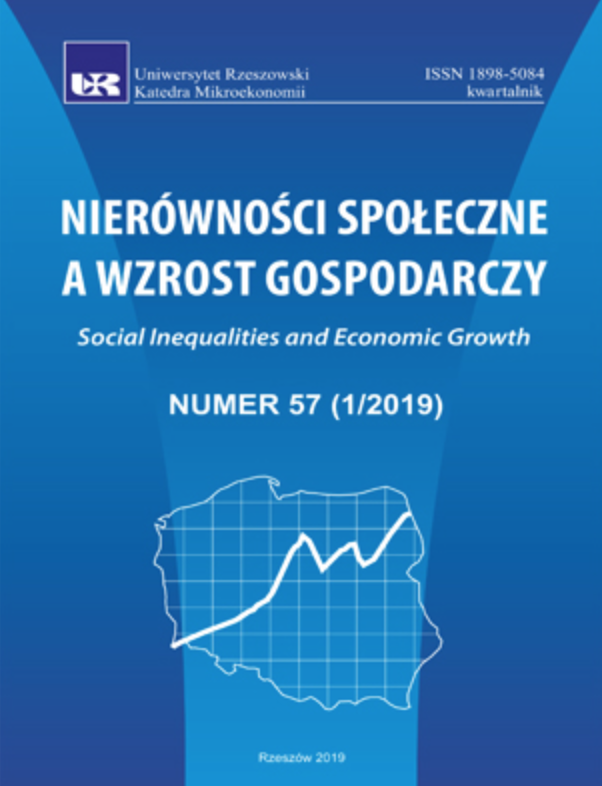Fair income inequalities and payroll taxation
DOI:
https://doi.org/10.15584/nsawg.2019.1.29Keywords:
fair remuneration, income inequality, human capital, payroll taxationAbstract
The subject of a discussion is the theoretically justified taxation of remuneration for work. The basic theory determining the amount of remuneration is the theory of human capital of employees. As a result of the research, it was shown that the fair remuneration is a percentage of the value of the employee’s human capital. This percentage is a measure of the spontaneous natural loss of human capital and is related to the size of a constant p = 0.08 [1/year]. Fairness of wages is an economic category, and means that two workers receiving fair wages can result in two of their descendants to their level of human capital. From these dependencies the conclusion is formulated that fair remuneration should not be reduced by direct tax, because the conditions of economic equilibrium will not be maintained. Therefore, the aim of this study is to present a proposal for the construction of a remuneration tax model.Downloads
Download data is not yet available.
Downloads
Published
2020-11-13
How to Cite
Renkas, J. (2020). Fair income inequalities and payroll taxation. Social Inequalities and Economic Growth, 1(57), 402–419. https://doi.org/10.15584/nsawg.2019.1.29
Issue
Section
Articles
License
Copyright (c) 2019 University of Rzeszow

This work is licensed under a Creative Commons Attribution-ShareAlike 4.0 International License.


